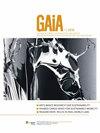How to build Theories of Change for transdisciplinary research: Guidance and considerations
IF 1.9
4区 社会学
Q4 ENVIRONMENTAL SCIENCES
Gaia-Ecological Perspectives for Science and Society
Pub Date : 2023-05-20
DOI:10.14512/gaia.32.1.18
引用次数: 2
Abstract
A Theory of Change (ToC) is a set of testable hypotheses that model how an intervention will contribute to a change process. ToC development and use can help in the design of transdisciplinary research to build trust and accountability in the research process. We present an online process for ToC facilitation and offer guidance to collaboratively build a ToC for transdisciplinary research.Transdisciplinary research (TDR) aims to solve problems in complex systems by drawing from a range of methods and expertise to contribute to change processes. Theories of Change (ToCs) are well-suited to support TDR design and implementation, but they rarely achieve their full potential. In practice, ToCs are often compromised by insufficient engagement with the context, weak theoretical bases, poor articulation, and a lack of iteration. This paper presents a process for ToC design based on the authors’ experience facilitating ToC development for research planning and evaluation. We illustrate the process using an in-progress TDR example on patient-oriented cancer care research. The approach begins by framing the social and research problems and then identifies activities and outputs, key actors, outcomes, and underlying causal assumptions. Skilled facilitation and strong conceptual familiarity are key to effectively mobilize ToC concepts into a cohesive and testable model to refine a strategy with TDR stakeholders. Key considerations and resources are offered to enhance ToC development planning and facilitation.如何构建跨学科研究的变革理论:指导与思考
变革理论(ToC)是一组可测试的假设,用于模拟干预措施将如何促进变革过程。ToC的开发和使用有助于跨学科研究的设计,以在研究过程中建立信任和问责制。我们介绍了ToC促进的在线流程,并为合作构建跨学科研究的ToC提供指导。跨学科研究(TDR)旨在通过借鉴一系列方法和专业知识来帮助改变过程,从而解决复杂系统中的问题。变革理论(ToCs)非常适合支持TDR的设计和实施,但它们很少充分发挥潜力。在实践中,ToC经常因与上下文的接触不足、理论基础薄弱、表达不畅和缺乏迭代而受到损害。本文根据作者促进ToC开发的经验,提出了ToC设计过程,用于研究规划和评估。我们使用一个以患者为导向的癌症护理研究的住院TDR实例说明了这一过程。该方法首先确定社会和研究问题,然后确定活动和产出、关键参与者、结果和潜在的因果假设。熟练的引导和对概念的高度熟悉是将ToC概念有效动员到一个有凝聚力和可测试的模型中的关键,以完善与TDR利益相关者的战略。提供了关键考虑因素和资源,以加强ToC发展规划和便利化。
本文章由计算机程序翻译,如有差异,请以英文原文为准。
求助全文
约1分钟内获得全文
求助全文
来源期刊

Gaia-Ecological Perspectives for Science and Society
ENVIRONMENTAL SCIENCES-
CiteScore
2.30
自引率
18.80%
发文量
43
审稿时长
>12 weeks
期刊介绍:
GAIA is a peer-reviewed inter- and transdisciplinary journal for scientists and other interested parties concerned with the causes and analyses of environmental and sustainability problems and their solutions.
Environmental problems cannot be solved by one academic discipline. The complex natures of these problems require cooperation across disciplinary boundaries. Since 1991, GAIA has offered a well-balanced and practice-oriented forum for transdisciplinary research. GAIA offers first-hand information on state of the art environmental research and on current solutions to environmental problems. Well-known editors, advisors, and authors work to ensure the high quality of the contributions found in GAIA and a unique transdisciplinary dialogue – in a comprehensible style.
 求助内容:
求助内容: 应助结果提醒方式:
应助结果提醒方式:


